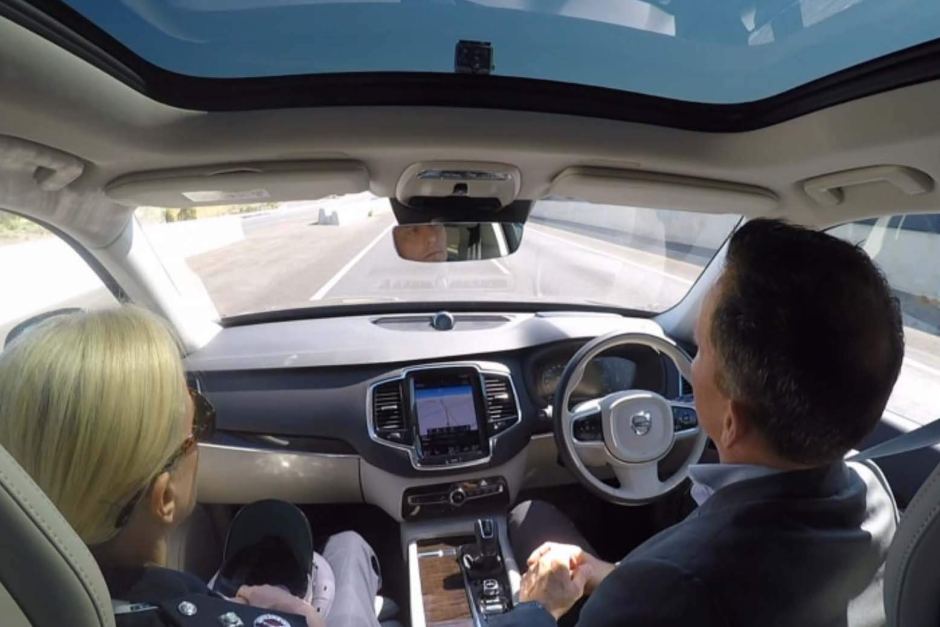Category: Science and Technology / Road Transport / Government and Politics / States and Territories / Programs and Initiatives / University and Further Education
Adelaide airport, uni campus to test driverless vehicles
Tuesday, 21 Mar 2017 10:16:22

About one-in-four motoring organisation members backs the idea of driverless vehicles, the RAA says. (Australian Driverless Vehicle Initiative)
Driverless electric shuttles will be used at Adelaide Airport in a trial for moving passengers between the main terminal and the long-term car park.
Key points:
- Three trials to be funded by a $10m future mobility fund
- Public support for driverless vehicles remains low, RAA says
- Trials hoped to build South Australians' support of technology
The South Australian Government said it would be one of three driverless car technology trials backed by its $10 million future mobility lab fund.
Two other grants will let Flinders University test out public transport shuttles and cargo deliveries at its Tonsley campus in Adelaide's south.
South Australian Transport Minister Stephen Mullighan said tests would focus on what were known as "last mile" services.
"They're particularly useful on closed campus-like environments like we've got at Tonsley and like the airport," he said.
Driverless shuttles around Flinders University might eventually travel as far afield as the nearby Marion shopping complex, the Government said.
The five-year project would initially involve testing a self-driving shuttle bus at the Tonsley campus, later also taking in the Flinders' Bedford Park campus and neighbouring Flinders Medical Centre, it said.
The next stage would use public roads in the Tonsley, Oaklands Park and Marion areas of the southern suburbs.
Adelaide's first public road test of driverless vehicle technology saw a modified Volvo with driverless software put through its paces at up to 70 kilometres per hour on the Southern Expressway in 2015.
Public yet to be convinced
RAA senior manager Mark Borlace said he hoped the new trials would break down some of the public resistance to wider use of driverless technology.
"Trialling a self-driving vehicle in real-world conditions will allow us to test and integrate this new technology as a first and last mile solution to Adelaide's public transport systems," he said.
"We know that many of our members are hesitant to embrace the concept of a self-driving vehicle, after a survey revealed just 23 per cent said they'd feel safe in a car that drives itself.
"This trial will give the public an opportunity to see and experience the technology first-hand."
Flinders' head of civil engineering Professor Rocco Zito agreed on the need to win public support.
"In order for driverless vehicles to become an integral part of our transport system, we need to have trials that prove the technology under real-world conditions, and encourage public participation," he said.
- About Us
- |
- Terms of Use
- |
-
 RSS
RSS - |
- Privacy Policy
- |
- Contact Us
- |
- Shanghai Call Center: 962288
- |
- Tip-off hotline: 52920043
- 沪ICP证:沪ICP备05050403号-1
- |
- 互联网新闻信息服务许可证:31120180004
- |
- 网络视听许可证:0909346
- |
- 广播电视节目制作许可证:沪字第354号
- |
- 增值电信业务经营许可证:沪B2-20120012
Copyright © 1999- Shanghai Daily. All rights reserved.Preferably viewed with Internet Explorer 8 or newer browsers.




 Send to Kindle
Send to Kindle